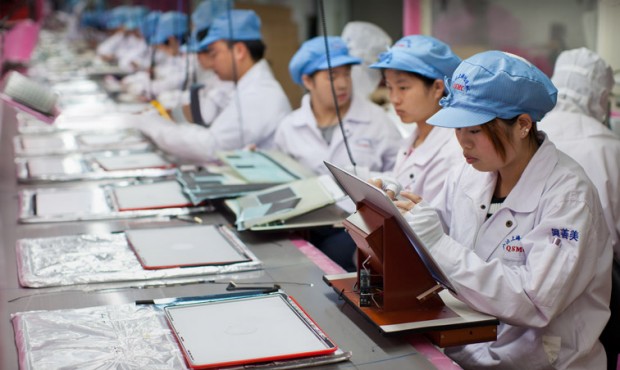The overwhelming feelings of sadness, guilt, helplessness, and ignorance will almost certainly follow a story like the one told by Mr. Daisey regarding his visit to FOXCONN. How can Apple executives (and many other companies) let these conditions persist while maintaining consistently high profit margins? Perhaps, like Kathy, they have convinced themselves that the workers’ experience is an experience that too far disconnected from their own as to be compared to that of someone who is mentally ill. It is impossible for many to judge how it feels to be in a workers’ position, and so it is similarly impossible to empathize. To be able to trully understand transcends the ability to conduct everyday business, and is in many ways counterproductive. Also saddening, is the realization that we too are trapped in a society where it is no longer possible to be detached from our “machines” while maintaining a standard of living. Go ahead. Stop buying phones and computers.
So, It seems that we are all guilty of being complacent. While these conditions continue, we collectively nurture a social pressure to buy and use Apple products. Meanwhile, any story of the horrors that we have helped cause must be repressed. This is not the first time I have heard that FOXCONN employees attempt to commit suicide, yet I have largely just repressed any thought of it. It is too harsh, too ugly, and too foreign for many of us to ponder often. It is horrible, yet true, and we are all guilty.
Despite this knowledge, it seems that we have no choice. Similar to the dystopian society in 1984, most of us would suffer immensely if we tried to give up all of the bits and pieces of technology that we have acquired. It is a part of us, and we are a part of it. In this way we are slowly becoming the machine; an economic machine that encourages blind purchasing, complete with physical devices that break down real connection.
At this very moment, I am typing thoughts into a computer, instead of embracing the life that Socrates believed dialogue possessed. Ironically, I am contradicting the message that I may have been eluding to. Should I stop writing now? Should a passionate Apple fan refrain from buying the next big thing? I’d say probably yes to both, but we will ignore these things and continue on. More likely than not, we are preparing the future for a dystopian society in more ways than we can count, and this is a sad truth. If a radical solution were to exist, it would probably be ignored; repressed because incompatible with current society.


You’ve brought up a very good point in that we are so dependent on our technology that simply proclaiming “we are better than this” and stopping our use of electronics is quite unrealistic. I wonder if any consumer based demands of reform towards Apple apart from refusing to buy their products are really effective..
LikeLike
I really like that you’ve pointed out that Kathy asked if Mike thought the workers might be mentally ill. I thought that was one of the most powerful portions of the podcast. That people would rather just believe that everything was great inside of the factories rather than facing what the human rights violations that occur inside is baffling to me. How is one able to ignore such a glaring issue? As you pointed out, we have to be incredibly disconnected to do so. It is time for people to hold companies responsible for their actions, both domestically and overseas.
LikeLike
I was drawn by the sentence, “Despite this knowledge, it seems that we have no choice.” It contradicts my personal blog post, yet as I read through your blog I realized the validity of this idea of ours being progressively dystopian society. Focusing on the concept of ‘having no choice’, there are three sides: Is this fueled by unwavering brand loyalty to the Apple ‘religion’, unhealthy reliance on technology, or do we as consumers truly lack ethical options for personal technology companies?
Considering your second example, I think this reliance on technology contributes heavily to the idea of our progressively dystopian society. I think the incorporation of 1984-esque themes into discussion allowed me to understand how the Apple commercial ties into the podcast. Our society’s ignorance of bad business practices in favor of our pursuit of ever improving technology is what allows for Foxconn to exist even after its poor publicity. This prioritization of technological advancement on technology desensitizes us to the human rights and policy violations which are victims of progress. This kind of desensitization is what could arguably lead to a 1984-esque society.
LikeLike
Really enjoyed this blog post for several reasons. It is evident through the post that technology has become engraved in our daily lives. So much to the point that we use it constantly at the cost of unethical production methods that affect others greatly. The post truly does illustrate that, “It is a part of us.”
LikeLike